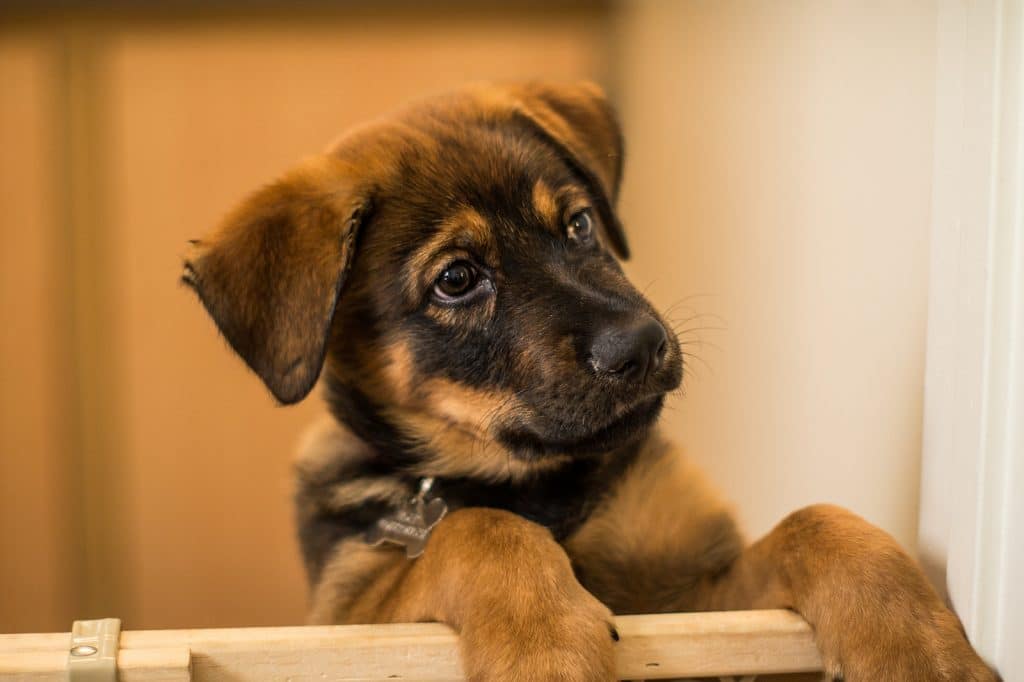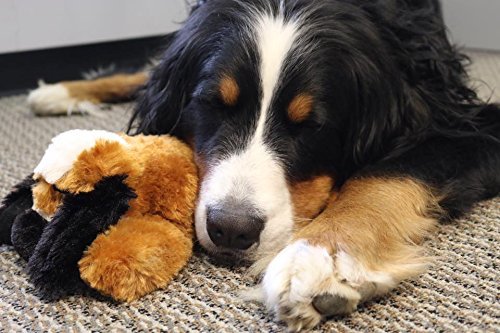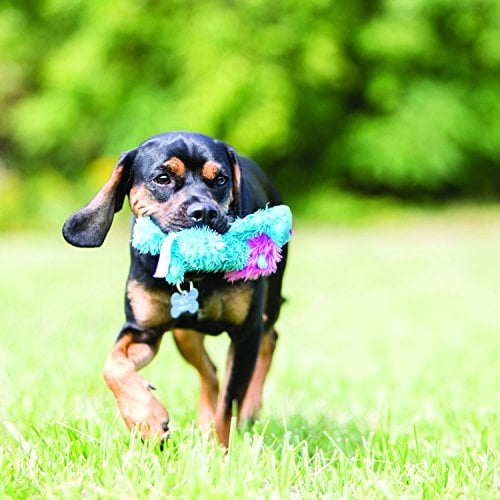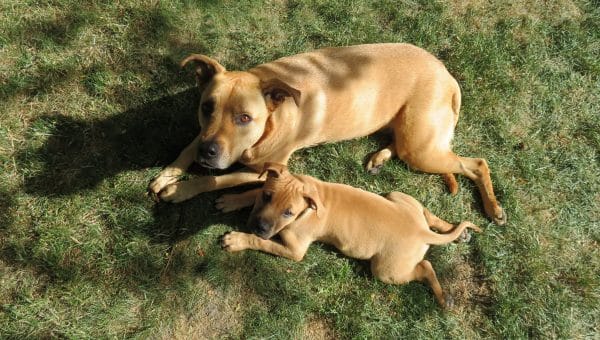We’ve all been there—after an exciting day bringing your new puppy home, you feed her and put her to bed in her crate and it starts. The whining. You try shushing her, putting a towel over the crate door, or providing a toy. She just went out, so why won’t she quiet down? She must be exhausted! If you’ve ever wondered why your puppy is whining so much, read on.
Whining alerts the mother dog that the puppy needs something.
First of all, know that whining is a normal form of communication for a puppy. Like any baby, they communicate with the tools at hand. Whining means something isn’t right in the puppy’s world and this method of communicating started the day she was born.
Whining alerts the mother dog that the puppy needs something—she could have been separated from her littermates (before their eyes open and before their motor skills are very developed) and gotten cold. Or it could be that she’s hungry or needs to relieve herself. The mother dog responds quickly and appropriately to her whining puppy, and she quickly settles down again.
Once a puppy is old enough to go to a home of her own, she continues to use whining to let others know something’s not okay. And now it’s up to us to figure out why she’s not happy.
When puppies whine at night
Nine times out of 10, puppy whining is based on anxiety. She’s unhappy at being confined. She’s missing her littermates. It’s dark and she’s ‘alone’ for the first time in her life.
Puppies are less likely to whine, bark, or cry in distress if they sense your presence.
We know dogs are very social, and being isolated in another room is very upsetting to a new puppy. She’ll be much happier, and quieter, knowing you’re close. Puppies are less likely to whine, bark, or cry in distress if they sense your presence nearby. Keeping your puppy’s crate right next to your bed is helpful for the first few nights when she’ll be extra-worried about this big change in her little life. This way she can smell you and hear you.
How To Soothe a Whining Puppy At Night
When she whines at night, you can hang an arm over the side of the bed to let her sniff and lick your fingers. If she doesn’t settle down, and you know she doesn’t need to go to the bathroom, a rap on the crate to get her attention with a firm “no!” should do the trick. The main thing is to reassure her that she’s not alone.
An old trick that still works well is to wrap a ticking alarm clock in a towel for your puppy to sleep with. The noise is soothing and is said to remind the puppy of another dog’s heartbeat.
A high-tech version, and because many of us only have digital clocks these days, is a specially-designed toy for puppy snuggling. Such toys boast a ticking ‘heart’ sound and can be warmed before use, which is especially nice for toy-breed puppies. Simply place in the crate at bedtime.
When Puppies Whine During The Day
What if your puppy whines at other times of the day? First, remember that this is the only way she knows to communicate with you.
Is she trying to get your attention? Is she cold, or hot, or left alone too long? Is she bored? Is she full of energy and wanting to play? Does she need to go to the bathroom (or has she soiled her bed)? Is she uncomfortable or in some sort of pain (intestinal upset, for instance)?
Determining the cause of your puppy’s whining is important because you want to be sure she’s not in any physical discomfort.
Training A Puppy Not To Whine
If given the chance, your puppy will inadvertently ‘train you’ if you reward her with attention every time she whines. There may come a time when you just have to tough it out. You want to avoid creating a whining dog that has you at her beck and call—or, whine—every time she cries.
It can be a fine line, of course, and it’s important to address her social, emotional, and physical needs first. If the whining is from boredom or loneliness, make sure you’re providing plenty of stimulation and playtime. Enlist a trusted pet sitter or dog walker to help and seek out opportunities like puppy playdates.
If you’re confident that your puppy’s needs are met, then gradually increase the time between your puppy whining and your response. Also, give your puppy what she wants (playtime, say, or food) when she’s not whining, so she doesn’t associate whining with rewards.
If you give a puppy attention (even negative attention) every time she whines, it will almost certainly increase her whining in the future.
Prevent Whining With Plenty Of Activity
Another trick to reducing puppy whining is to keep them occupied. Get in the habit of giving her a safe chew toy at bedtime for her to work on until she forgets her troubles. During the day, try fetch and chase games to wear her out.
Giving your new puppy plenty of attention, exercise, and toys to play with is part of the fun of raising your new best friend. As she learns the routine and understands she isn’t being abandoned, the whining will decrease and stop. A puppy obedience class as soon as she is old enough (after vaccine boosters) will help her to learn manners and gain confidence as she learns what is expected of her, and will deepen your bond.
And somewhere along the way, you’ll notice that she doesn’t whine anymore. Have fun!
_
Featured image: Bharathi Kannan on Unsplash








